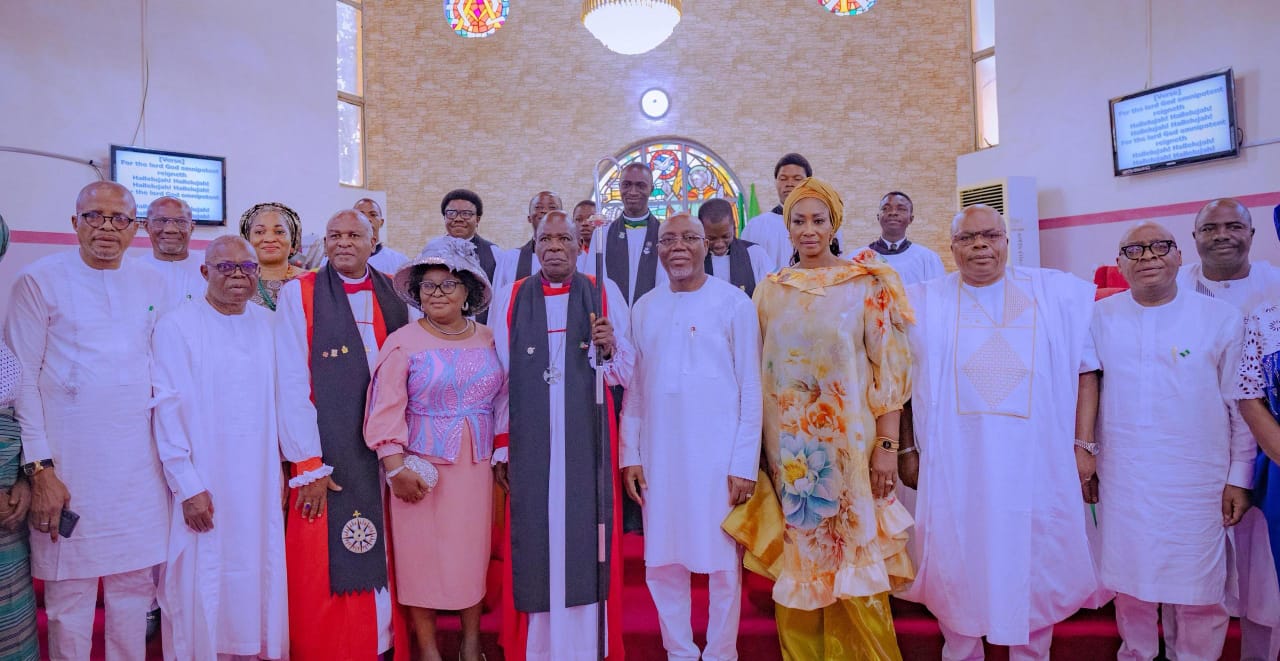
The Executive Director, Corporate Services, Niger Delta Development Commission (NDDC), Honourable Ifedayo Abegunde, has described women as strong catalysts for societal change whose contributions have been instrumental to our past and must remain central to our future.
Abegunde made this assertion in his welcome address at the 2025 International Women’s Day Celebration and the 25th anniversary of NDDC in Akure on Monday.
Honourable Abegunde extolled the role of women by saying that the agitation for justice, equity, and development which gave birth to NDDC was not waged by men alone, adding that women also played a very critical role in that process.

He said, “Women across the region played remarkable, courageous, and sacrificial roles. They were community mobilizers, peacemakers, human rights advocates, and caregivers, even in times of turmoil.
“Whether as silent organizers or vocal advocates, they demanded change. Their unrelenting support sustained the momentum that led to the creation of the Commission in 2000.”

Speaking on the theme for this year’s celebration, Accelerate Action: invest in Women, Advancing Rghts Leadership and Equality, Abegunde noted that it speaks to the heart of the transformation of the Niger Delta, and Indeed for Nigeria, where women are no longer seen merely as contributors from the sidelines, but as co-drivers of sustainable development, peace, and progress.
Emphasizing the important role of women in nation-building, the NDDC chieftain assured of the commission’s unwavering commitment to women’s empowerment which is not only symbolic but strategic, adding that it is borne from the commission’s firm belief that women are the pillars of the society, and empowering them is essential to achieving the Sustainable Development Goals (SDGs) on Gender Equality and Reducing Inequality.
Drawing from countries like Rwanda and India, he stressed that women empowerment is a deliberate investment that that has reshaped communities, increased resilience, reduced poverty and even lowered rates of conflict.
While urging the participants to participate actively in the event, Abegunde admonished them to see themselves as not just beneficiaries but ambassadors who have been carefully chosen to stand in for many.
“You are the light bearers. The message of this gathering of equality, of empowerment, of opportunity must not end here. It must go with you, back to the markets, the schools, the farms, the churches and mosques, the town halls, and the living rooms,” he said.
In her keynote address, Comrade Victoria Bola Akomolafe, a retired head teacher and former official of the Nigeria Union of Teachers (NUT), described the theme of the event, which coincides with the 25th anniversary of the NDDC, as not only timely but critical to the survival, development and prosperity of grassroot communities.l
She noted that investing in women is not merely a moral imperative but an economic and social necessity, saying that research consistently demonstrates that empowering women leads to broader societal benefits.
Akomolafe said, “according to the International Monetary Fund (IMF), women contribute to economic growth both directly and indirectly. Direct contributions come through workforce participation, which boosts production, income, savings and tax contributions at household, community and national levels.
“Indirectly, women influence social change by taking on leadership roles in communities, fostering transitions to democracy and promoting more responsive leadership.”
She, however, noted that in the Niger Delta where women historicallly have been marginalized, investing in their empowerment through access to education and training, supportive policies and infrastructure, mentorship and networks, and cultural change can lead to transformative changes.
Comrade Akomolafe assured that achieving gender equality in Ondo State and in the Niger Delta at large would lead to economic development, improved health outcomes, enhanced education and strengthened communities.
Her words: “empowering women has far-reaching effects on society. Studies have shown that gender equality contributes to economic growth, social stability, and environmental sustainability.
“For example, the European Institute for Gender Equality highlights that improving gender equality can lead to increased GDP per Capita, higher employment rates and enhanced productivity. Specifically, by 2050, improving gender equality could increase the European Union’s GDP per Capita by 6.1 percent to 9.6 percent, amounting to €1.95 to €3.15 trillion.”
Other speakers also took turns to highlight the potentials of women and the need for greater measures of gender equality and gender balance.










